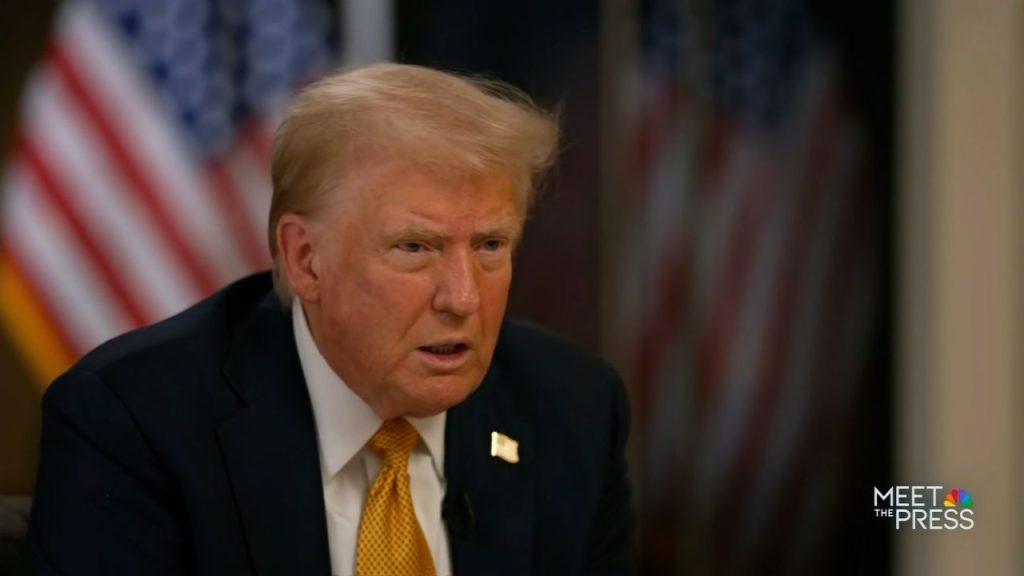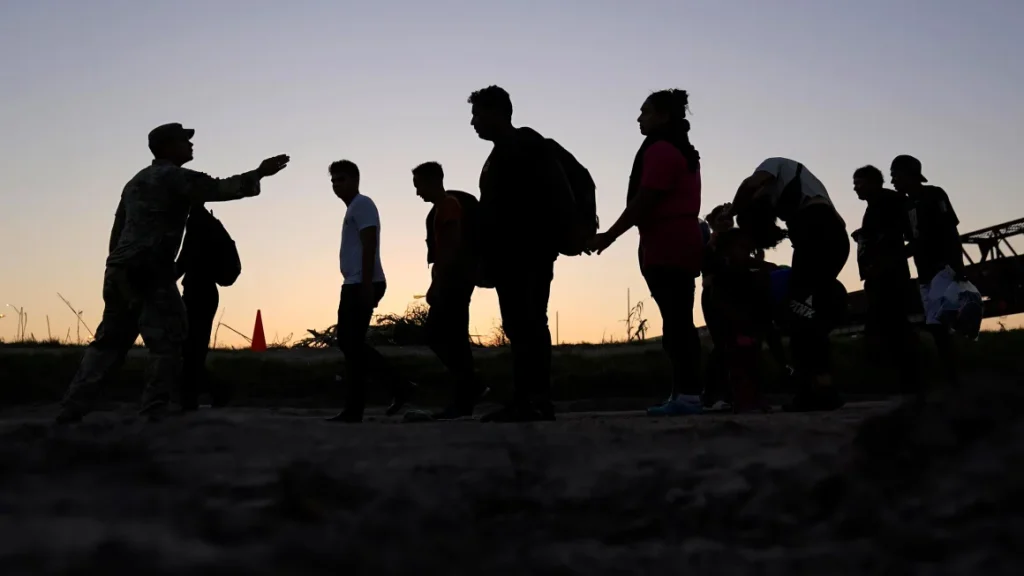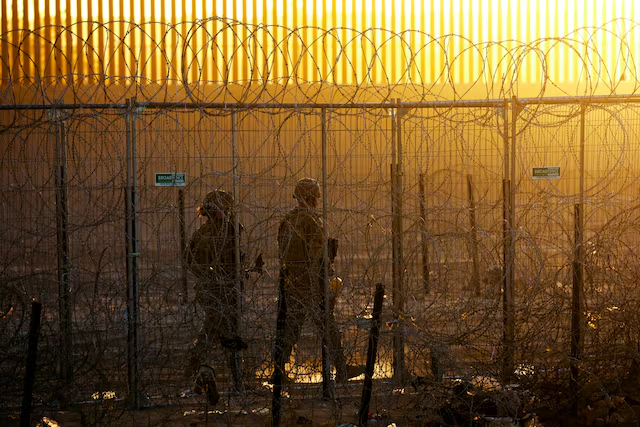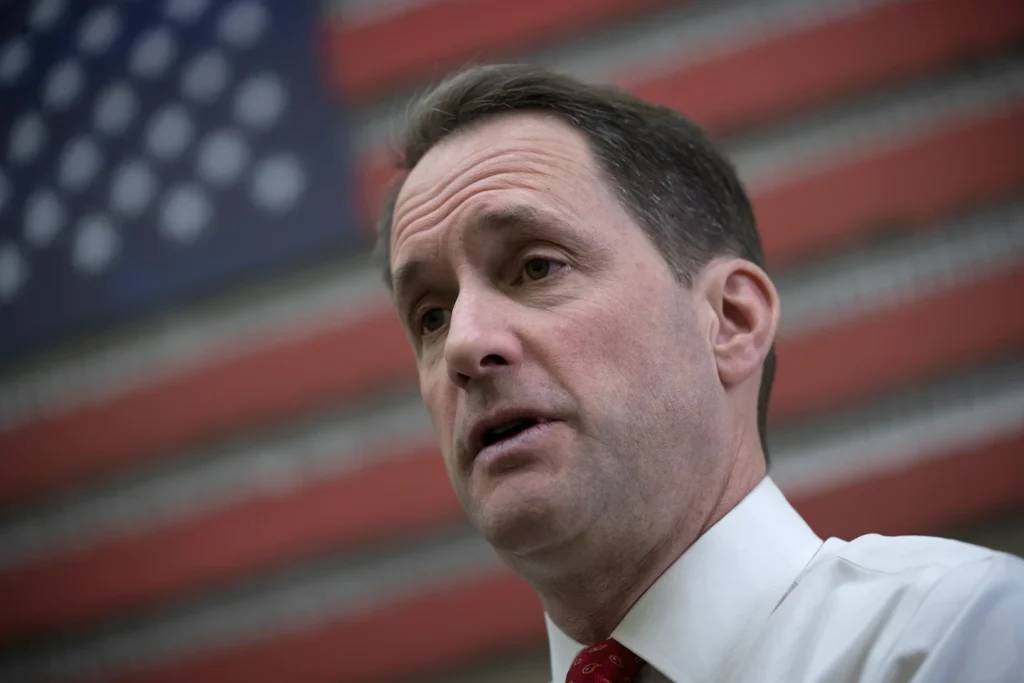Trump lays out sweeping early acts on deportation and January 6 pardons, says Cheney and others ‘should go to jail’

Former President Donald Trump has unveiled a bold set of proposals for his first days in office should he secure a second term, focusing heavily on immigration enforcement and accountability for those involved in the investigations surrounding the January 6th Capitol attack. Trump’s sweeping agenda includes aggressive moves to deport millions of undocumented immigrants, a promise to issue pardons to individuals involved in the January 6th riot, and a stark warning for political figures like former Rep. Liz Cheney who played prominent roles in the aftermath of the insurrection.
In a series of statements, Trump painted a vision of swift and uncompromising action, suggesting that his administration would take immediate steps to restore what he claims are common-sense policies aimed at protecting the U.S. from illegal immigration and punishing those he deems responsible for the January 6th investigation. Trump’s stance on immigration has long been a cornerstone of his political platform, and he reiterated his commitment to deportation, declaring that within his first days back in office, he would move to expel millions of people living in the U.S. illegally. These actions would likely include ramping up cooperation with local law enforcement and increasing the number of deportation raids, with a focus on individuals who have been convicted of crimes.
The former president’s hardline approach to immigration enforcement was further underscored by his promise to reinstate and strengthen policies such as family separation at the southern border, which had previously drawn widespread criticism. He has consistently framed illegal immigration as one of the greatest threats to U.S. security and sovereignty, and during a recent appearance, Trump emphasized that deportations would be a top priority of his administration.
Perhaps the most contentious part of Trump’s plan, however, centers on his remarks regarding the January 6th Capitol attack and the subsequent investigations into the events of that day. Trump has repeatedly criticized the committee formed to investigate the insurrection, which included Republican Rep. Liz Cheney, who was one of its most vocal members. Cheney, along with other members of the committee, led a detailed inquiry into the actions that led up to the Capitol breach and the efforts by Trump and his allies to overturn the 2020 presidential election results.
Trump has not held back in his criticisms of Cheney, who has become a frequent target for the former president’s ire due to her outspoken condemnation of his role in the January 6th events. In recent remarks, Trump stated that Cheney and other individuals who participated in the investigation should face legal consequences, saying they “should go to jail.” His comments reflect a broader strategy to discredit the probe and to retaliate against those who he believes have undermined his political standing.
In addition to his harsh rhetoric towards Cheney, Trump has made it clear that one of his primary goals upon returning to the White House would be to issue pardons to those involved in the January 6th attack. He has previously suggested that he would consider pardons for many of the rioters who stormed the Capitol, framing their actions as a form of protest against what he calls a “rigged” election. Such a move would send a strong signal of support to his base, many of whom view the January 6th rioters as patriots rather than criminals.
Trump’s potential pardons and aggressive stance on immigration enforcement highlight a continued commitment to his “America First” agenda, which is characterized by populist rhetoric and an uncompromising approach to governance. While his promises of large-scale deportations and pardons for January 6th participants may resonate with his supporters, they are likely to provoke further divisions in an already polarized political climate.
Critics of Trump’s proposals argue that his plans would inflame tensions and exacerbate the country’s ongoing political and social divisions. Advocates for immigrant rights and criminal justice reform have condemned the idea of expanding deportations and pardoning individuals who participated in an attack on the nation’s democratic processes. Meanwhile, those who support Trump’s vision see these moves as necessary steps to restore what they perceive as law and order, in line with his past promises to prioritize national security and uphold American values.
Trump’s statements have reignited debates about the legacy of his presidency and the future direction of the Republican Party. With the 2024 election on the horizon, his proposals on deportation and pardons will likely remain central to his campaign messaging, even as they continue to draw criticism from his political opponents. As the political landscape continues to shift, Trump’s influence on the GOP remains undeniable, even as his actions and rhetoric raise questions about the long-term consequences of his policies.






